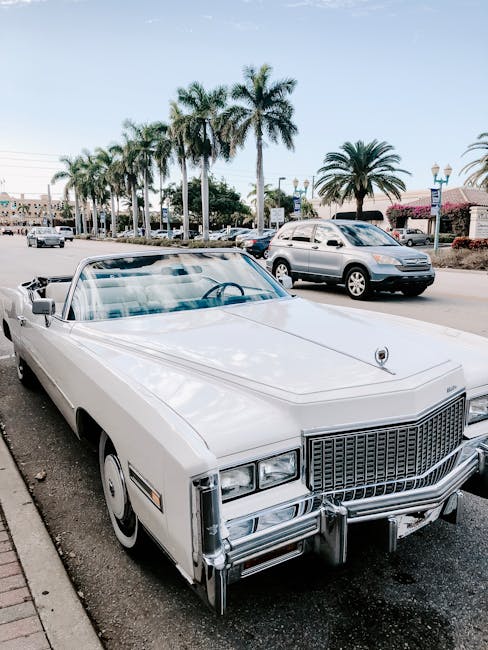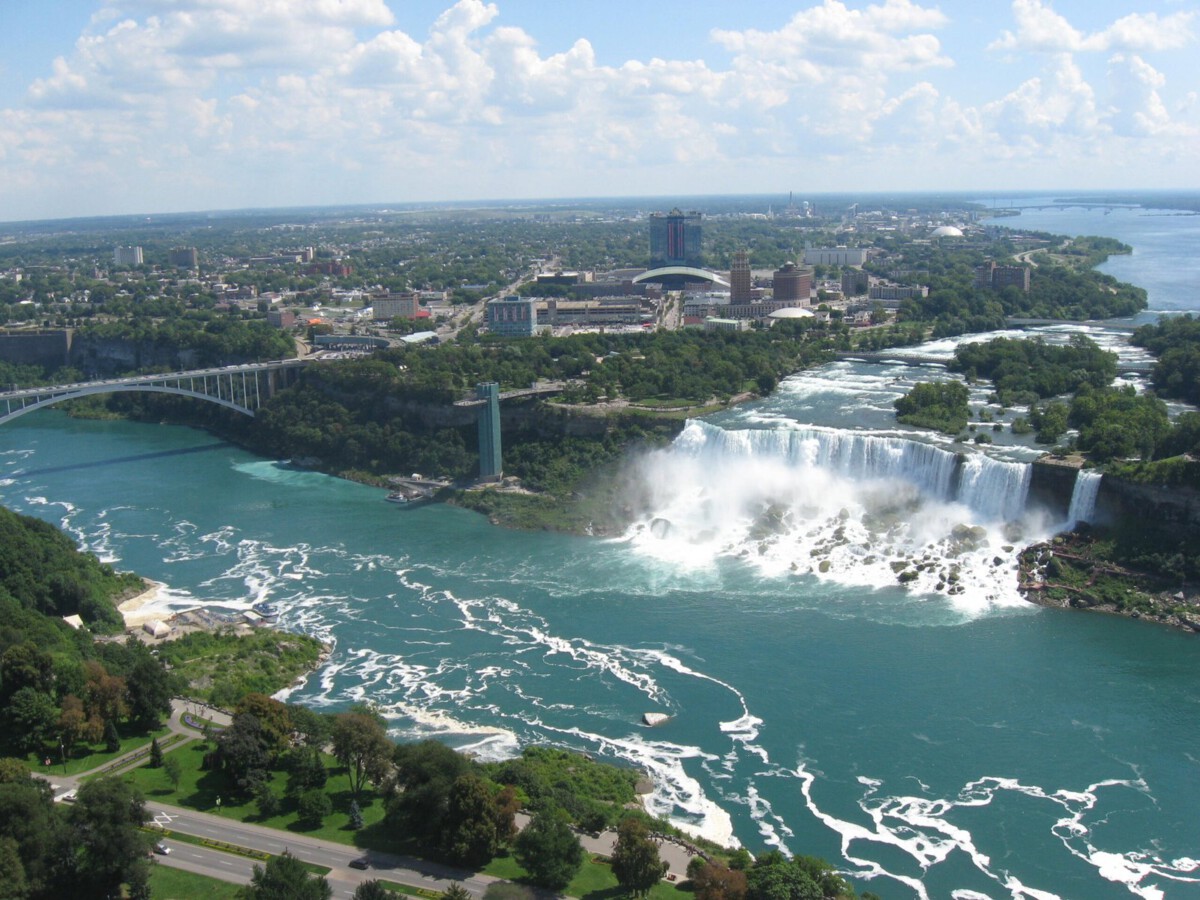Americans love to debate which parts of their country are the most stuck-up, snooty, or full of themselves. It’s a conversation that happens everywhere from Twitter feeds to dinner tables across the nation. Whether it’s the tech bros of Silicon Valley, the fashion elites of Manhattan, or the old-money suburbs of New England, certain places have earned reputations (deserved or not) for having residents who might look down their noses at the rest of us. But what makes a place “pretentious” anyway? Is it wealth? Education? The number of artisanal coffee shops per square mile? Let’s dive into the states that frequently top the lists of America’s most pretentious places.
California: Hollywood Dreams and Silicon Valley Schemes

California easily claims the crown as America’s most pretentious state, particularly in its coastal hubs of Los Angeles and San Francisco. In LA, the entertainment industry has created a culture where appearance is everything and name-dropping is practically an Olympic sport. According to a 2023 YouGov survey, 45% of Americans believe Californians are more obsessed with appearances than residents of any other state. Walk into any trendy LA restaurant and you’ll likely overhear someone loudly discussing their screenplay or their recent audition with a famous director. The situation isn’t much different up north in San Francisco, where tech wealth has transformed once-bohemian neighborhoods into exclusive enclaves. Housing prices have skyrocketed so high that even well-paid professionals feel poor, creating a strange dynamic where people making six figures complain about “barely getting by.” Perhaps most telling is the proliferation of what locals call “conscious consumption” – paying $8 for an organic, fair-trade, locally-sourced coffee while discussing the evils of capitalism on a $2,000 MacBook.
New York: The Center of the Universe (Just Ask Them)

If you’ve ever met a New Yorker who’s moved elsewhere, you’ve probably heard the phrase “Well, in New York…” within the first five minutes of conversation. Manhattan in particular breeds a special brand of pretentiousness born from the genuine belief that it is, indeed, the center of the universe. A Pew Research Center study from 2022 revealed that 55% of New Yorkers consider themselves part of a sophisticated culture – significantly higher than the national average. The city’s breakneck pace creates an environment where efficiency is prized above pleasantries, which outsiders often interpret as rudeness or snobbery. New York’s food scene epitomizes this attitude – restaurants open to massive hype, are declared “over” within months, and close before most Americans have even heard of them. The state’s pretentiousness extends beyond just Manhattan though – from the literary elites of Brooklyn to the old money estates of the Hamptons, New Yorkers have elevated looking down on others to an art form. Even upstate residents aren’t immune, with Hudson Valley towns transforming into weekend retreats for wealthy city dwellers who complain about “authenticity” while pricing out locals who’ve lived there for generations.
Massachusetts: Where Education Is a Competitive Sport

Massachusetts, particularly the Boston area, has cultivated a unique brand of pretentiousness centered around intellectual achievement. Home to Harvard, MIT, and dozens of other prestigious institutions, the state boasts the nation’s highest percentage of college graduates at 60%, according to the American Council on Education. This educational dominance has created a culture where academic credentials are social currency. Bostonians have mastered the subtle art of working their alma mater into conversations where it has absolutely no relevance. The city’s intellectual pretentiousness extends beyond academics into sports (where fans consider themselves more knowledgeable than others), politics (where progressive values are assumed rather than discussed), and even driving (where navigating the city’s nonsensical streets is treated as proof of superior intelligence). Cambridge residents in particular have perfected what locals call the “Harvard Square stare” – that look of mild disdain when someone demonstrates unfamiliarity with obscure literary references or fails to recognize the significance of a particular research institution. Even Massachusetts’ vacation spots aren’t immune – Martha’s Vineyard and Nantucket serve as summer retreats where the professorial class can debate social justice while paying $15 for ice cream cones.
Connecticut: Where Your Zip Code Defines Your Worth

Connecticut’s reputation for pretentiousness stems from its position as the bedroom community for New York’s financial elite. Towns like Greenwich, New Canaan, and Darien have become synonymous with extreme wealth and exclusivity. According to Census data, Connecticut has some of the nation’s highest income inequality, with ultra-wealthy enclaves existing just miles from struggling cities. What makes Connecticut’s pretentiousness unique is how quietly it operates – there’s no flashiness here, just understated signals of extreme wealth. People drive “modest” luxury cars (never new models – that would be gauche) and live in “simple” colonial homes (that happen to cost millions). Country club memberships carry multi-year waiting lists, regardless of how much money you have. Connecticut’s particular brand of pretentiousness is perhaps best exemplified by its prep schools, where teenagers casually discuss their family’s “summer place” while wearing clothing that’s deliberately aged to look like it’s been passed down through generations. The state’s residents have perfected what sociologists call “inconspicuous consumption” – spending enormous sums on things only other wealthy people would recognize or value. Even Connecticut’s preferred recreational activities – sailing, equestrian sports, lacrosse – seem designed to exclude those without generational wealth or privileged backgrounds.
New Jersey: The Aggressive Defenders

New Jersey’s inclusion might surprise some, but its pretentiousness takes a defensive form that’s no less real. Living in the shadow of New York has created a chip-on-the-shoulder attitude that manifests in constant status-signaling. A 2022 Niche survey found that 40% of New Jerseyans acknowledge their state’s reputation for snobbery, yet continue to perpetuate it. The northern suburbs have mastered competitive parenting, with children’s achievements serving as proxies for family status. The shore communities, meanwhile, have developed elaborate social hierarchies determining which beaches are acceptable and which are for “bennies” (despised out-of-staters). New Jersey’s unique geographic position has created what sociologists call “defensive exclusivity” – residents simultaneously complain about outsiders’ negative perceptions while actively enforcing boundaries against those same outsiders. The state’s restaurant scene perfectly encapsulates this contradiction – locals will aggressively defend New Jersey’s culinary superiority while becoming deeply offended if you suggest dining anywhere that tourists might know about. Even the state’s notorious traffic has become a status marker – knowing the “secret” back routes or having an EZ Pass lane that moves slightly faster can trigger surprising levels of superiority. Perhaps most telling is how New Jerseyans discuss their property taxes – complaining bitterly about them while simultaneously using them as evidence of their community’s exclusivity and desirability.
Illinois: The Third Coast Superiority Complex

Chicago drives Illinois’ pretentious reputation, with its insistence on being recognized as a world-class city while simultaneously maintaining its “authentic Midwestern values.” According to that 2023 Chicago Tribune study, half of Chicago residents believe the city’s cultural institutions maintain deliberately exclusive attitudes. Chicago’s pretentiousness manifests most clearly in its dining scene, where restaurants require months-advance reservations not because they’re full, but because artificial scarcity creates cachet. The city’s neighborhoods demonstrate another layer of pretension – residents of areas like Lincoln Park and Wicker Park engage in elaborate justifications for why their part of the city is both more authentic and more sophisticated than others. Chicago’s infamous “dibs” system during winter snowstorms perfectly illustrates the city’s contradictory nature – residents place old furniture in cleared parking spots to reserve them, both a working-class tradition and a passive-aggressive territory marking. The city’s relationship with its own accent follows similar patterns – the distinctive Chicago pronunciation is simultaneously mocked and fiercely defended depending on the speaker’s social position. Even the city’s beloved sports teams reflect this dynamic, with Cubs fans looking down on White Sox fans, while both groups consider themselves more authentic than the suburban bandwagon fans who fill the stadiums during winning seasons.
Washington DC: Power as the Ultimate Status Symbol

Though technically not a state, no list of pretentious places would be complete without Washington DC. The nation’s capital has developed a unique form of pretentiousness centered around proximity to power rather than wealth or culture. The Brookings Institution reports that 70% of DC residents hold college degrees, creating an intellectual bubble disconnected from much of America. DC’s particular brand of pretentiousness manifests in subtle status competitions – the casual mention of “when I was in the West Wing,” or “my friend at State.” Even the city’s happy hours function as networking opportunities thinly disguised as social events. The question “What do you do?” isn’t casual conversation but a rapid assessment of your value to the person asking. Georgetown residents maintain a special level of historical pretentiousness, insisting their neighborhood represents “the real Washington” while complaining about tourists who come to see it. Housing in DC demonstrates another layer of the city’s status obsession – people pay astronomical rents for tiny apartments in specific zip codes rather than getting more space across arbitrary boundaries. Perhaps most telling is how DC residents discuss politics – there’s an assumption that everyone follows every congressional committee hearing and cabinet appointment with the same obsessive attention they do. Even DC’s traffic patterns reflect its power structure, with special lanes and parking spaces reserved for the politically connected, creating a visible daily reminder of the city’s rigid hierarchy.
Florida: Where New Money Goes to Show Off

Florida has developed its own distinctive brand of pretentiousness, particularly in enclaves like Palm Beach, Naples, and parts of Miami. According to that Florida Chamber of Commerce survey, 45% of Florida residents acknowledge the state’s reputation for snobbery. What makes Florida’s pretentiousness unique is its unabashed embrace of new money and conspicuous consumption. Unlike the old-money discretion of New England, Florida’s wealthy residents want you to know exactly how rich they are. The state has perfected what sociologists call “competitive display” – enormous yachts, exotic cars, and oceanfront mansions are not just possessions but weapons in status warfare. Florida’s gated communities represent this dynamic perfectly – exclusive enclaves with nearly identical Mediterranean-style homes, each trying to be slightly more impressive than the neighbors’. The state’s restaurant scene follows similar patterns, with establishments charging outrageous prices less for the quality of food than for the opportunity to be seen in the right places. Even Florida’s notorious plastic surgery culture reflects this value system – natural-looking enhancements are less valued than obvious work that signals the financial ability to transform oneself. The seasonal nature of Florida’s population creates another layer of pretentiousness, with “snowbirds” looking down on year-round residents, who in turn look down on tourists, creating a perpetual cycle of status judgment based primarily on when you arrived and how long you stay.
Texas: The Bigger, Better, and Don’t You Forget It State

Texas earns its spot on this list through a uniquely Texan form of pretentiousness – the absolute conviction that everything is better within state lines. That Texas Tribune study revealing 50% of residents acknowledge the state’s elitist culture barely scratches the surface of Texas pride. What makes Texas pretentiousness distinctive is that it crosses all economic classes – from oil barons to ordinary folks, Texans maintain an unshakable belief in their state’s superiority. Cities like Dallas have developed what sociologists call “competitive consumption communities,” where social standing depends on visible displays of wealth – enormous homes, luxury vehicles, and country club memberships. Houston’s energy executives have perfected the art of humble-bragging about their private jets and ranch properties while claiming to be “just regular folks.” Austin represents yet another variation – its residents maintain a pretentious insistence on their own unpretentiousness, claiming to be “weird” while enforcing increasingly exclusive social and economic barriers. The state’s distinctive cuisines have become another battleground for authenticity claims – heated arguments about barbecue techniques or the “correct” way to make chili function as proxies for deeper status competitions. Even Texas’ famous hospitality has a pretentious undercurrent – the insistence that Texans are friendlier than everyone else creates an environment where performing friendliness becomes its own kind of status signal. Perhaps most telling is how Texans treat transplants – newcomers face years of subtle reminders that they weren’t born in the Lone Star State, regardless of how long they’ve lived there.
Colorado: The Outdoorsy Elites

Colorado has developed a particularly modern form of pretentiousness centered around outdoor lifestyles and environmental consciousness. Denver and Boulder residents have perfected what sociologists call “conspicuous conservation” – ostentatious displays of environmental virtue that function as status symbols. According to a 2023 University of Colorado study, 65% of Front Range residents consider their outdoor recreation habits superior to those in other states. Colorado’s particular brand of pretentiousness manifests in casual conversations about “fourteeners” (mountains over 14,000 feet) conquered, with implicit judgment for those who haven’t attempted such climbs. The state’s recreational equipment serves a similar function – $5,000 mountain bikes and $800 ski jackets signal belonging to the right social circles more than practical necessity. Colorado’s food scene follows similar patterns, with restaurants competing not just on quality but on the locality and sustainability of ingredients. The state’s housing market demonstrates another layer of this dynamic – people pay premium prices for proximity to trailheads and mountain views, creating geographic hierarchies of desirability. Even Colorado’s famous microbreweries participate in this system – knowing the right obscure IPAs to order functions as a shibboleth separating insiders from outsiders. Perhaps most telling is how Colorado residents discuss their reasons for living there – the phrase “I came for the lifestyle” implicitly criticizes places with supposedly inferior lifestyles, while questions about why anyone would live elsewhere are presented as genuine curiosity rather than the judgment they actually represent.
Would you have guessed that pretentiousness could take so many different forms across America? From the intellectual elitism of Massachusetts to the conspicuous consumption of Florida, each state puts its own distinctive spin on looking down at others. But perhaps what’s most interesting is how fiercely residents of these states would deny their pretentiousness – after all, isn’t that denial the most pretentious response of all?







